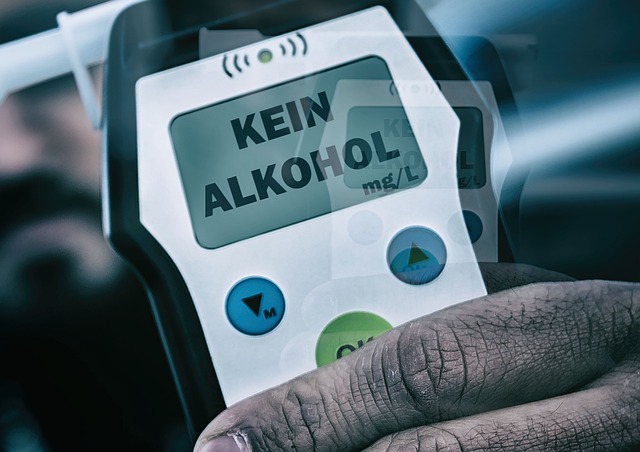Understanding your legal rights during traffic stops is essential for safe and fair interactions with law enforcement in the U.S. You have the right to remain silent, refuse searches without probable cause, and consult an attorney before consenting to procedures like Blood Alcohol Level (BAL) testing, which carries consequences but may be protected by the Fourth Amendment. Assertively communicate your rights, document stops thoroughly, and consider legal advice to navigate potential DUI/DWI charges effectively.
Are you aware that during a traffic stop, you possess legal rights? In this comprehensive guide, we’ll walk you through understanding your rights, navigating blood alcohol level testing (BALT), and what happens if you refuse. Learn how remaining calm and asserting your rights can protect you, along with the potential consequences of declining field sobriety tests. Discover best practices for documenting stops and exploring legal options after a DUI/DWI arrest.
- Understanding Your Legal Rights During a Traffic Stop
- Blood Alcohol Level Testing: What to Expect
- The Importance of Remaining Calm and Asserting Your Rights
- Refusing Field Sobriety Tests: Consequences and Implications
- Documenting the Stop: Taking Photos, Note-Taking, and Recording
- Legal Recourse After a Traffic Stop for DUI/DWI
Understanding Your Legal Rights During a Traffic Stop

During a traffic stop, it’s crucial to understand your legal rights to ensure a safe and fair interaction with law enforcement. In the United States, for instance, you have the right to remain silent; anything you say can and will be used against you in court. Additionally, you are not required to consent to searches of your vehicle or person unless a police officer has probable cause, such as observing illegal activity.
If a law enforcement officer requests a Blood Alcohol Level (BAL) test, you have the right to refuse. Refusing is protected by the Fifth Amendment, which safeguards against self-incrimination. However, failure to comply may result in penalties like license suspension or even arrest. It’s wise to politely assert your rights and request an attorney if available.
Blood Alcohol Level Testing: What to Expect

When a law enforcement officer suspects that you might be driving under the influence (DUI), they may request that you submit to a Blood Alcohol Level (BAL) test. This is a crucial aspect of the process as it provides scientific evidence of your intoxication level. During a BAL test, a sample of your blood or breath is collected and analyzed to determine the concentration of alcohol present.
What to expect during this procedure: The officer will typically explain the process and ensure you understand your rights. For blood testing, a medical professional will draw a small sample from your arm using a needle. This procedure is quick and usually causes minimal discomfort. For breath testing, you’ll blow into a machine that measures the alcohol in your exhaled breath. It’s important to remain calm and follow the officer’s instructions throughout the process.
The Importance of Remaining Calm and Asserting Your Rights

Remaining calm during a traffic stop is paramount, even if you believe the officer has overstepped their bounds. Keeping your composure allows you to assert your rights effectively and remember crucial details. If asked, politely refuse any initial requests for consent or testing, such as Blood Alcohol Level (BAL) testing, until you’ve consulted your legal rights. You have the right to remain silent and to consult with an attorney present during questioning.
Asserting yourself doesn’t mean being aggressive; it’s about understanding your legal position and communicating that clearly to the officer. You can express that you’re aware of your rights and ask for a specific explanation if something isn’t clear. This approach ensures you document any potential misconduct and protect yourself from wrongful actions, especially when it comes to BAL testing or other invasive procedures.
Refusing Field Sobriety Tests: Consequences and Implications

Refusing a field sobriety test, often requested during a traffic stop if an officer suspects drunk driving, can have significant consequences. While you have the right to remain silent and refuse testing, this decision is not without implications. If you decline, the officer may still arrest you for DUI (Driving Under the Influence) based on observable signs of intoxication or other evidence gathered during the stop.
This refusal can impact your case later in court, as it may be used as evidence against you. Blood alcohol level testing, such as a breathalyzer or blood test, is strong proof of impairment and refusing these tests could weaken your defense strategy. It’s important to understand the potential outcomes before deciding whether to take or refuse the field sobriety examination during a traffic stop related to DUI allegations.
Documenting the Stop: Taking Photos, Note-Taking, and Recording

When dealing with a traffic stop, it’s crucial to document the interaction. Taking photos of your vehicle and the surrounding area can capture important details. Note-taking during the stop is essential; jot down dates, times, officer information, and any unusual occurrences. If you have a dashboard camera or your phone handy, recording the stop can also be beneficial, ensuring transparency.
Furthermore, if Blood Alcohol Level Testing (BALT) is involved, knowing how to document this process is vital. Take note of the testing procedure, the time it was conducted, and any deviations from standard protocols. Accurate documentation can help protect your rights and provide a clear record for future reference.
Legal Recourse After a Traffic Stop for DUI/DWI

After a traffic stop due to suspicion of DUI/DWI, individuals often face stressful and intimidating situations. It’s crucial to understand your legal rights during such encounters. In many jurisdictions, law enforcement officers are required to inform you of your rights, including the right to remain silent and the right to an attorney. Refusing certain tests, like Blood Alcohol Level (BAL) testing, can have legal repercussions but is often protected under the Fourth Amendment as a safeguard against unreasonable searches and seizures.
If you’ve been asked to undergo BAL testing or other procedures, it’s advisable to exercise your right to consult with an attorney first. Legal counsel can help navigate the complexities of DUI/DWI laws and ensure your rights are protected. If evidence is collected without proper legal processes, it may be excluded from court proceedings, potentially leading to a case dismissal or reduced charges.
Understanding your rights during a traffic stop is essential, especially when facing charges like DUI or DWI. Knowing how to respond and what to expect can protect you from unfair treatment and ensure your legal rights are upheld. Remember, remaining calm, asserting your rights, documenting the stop, and seeking legal advice if needed are crucial steps in navigating these challenging situations. With the right preparation, you can confidently navigate a traffic stop, especially when it involves Blood Alcohol Level Testing, and protect yourself against potential consequences.






